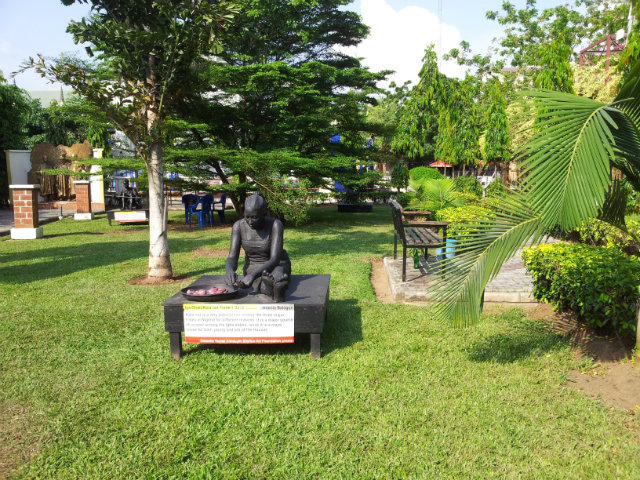By Itoro Oladokun
01 October 2024 |
1:39 pm
Nigeria boasts a rich history filled with both struggles and victories. From the colonial period to the fight for independence, the nation’s journey has been shaped by the sacrifices of numerous individuals. To honor Nigeria’s Independence Day, we will delve into five important sites that symbolize the nation’s fight for freedom.

Nigeria has a rich history filled with both challenges and triumphs. From its colonial past to the struggle for independence, the country’s narrative is shaped by the sacrifices of many. As we celebrate Nigeria’s Independence Day, let’s explore five significant sites that embody the nation’s journey toward freedom.
1. Ikoyi Prison
Ikoyi Prison, situated in Lagos, stands as a stark reminder of the country’s quest for independence. This infamous prison housed many Nigerian nationalists, including the renowned Chief Obafemi Awolowo. Their relentless fight against British colonial rule is deeply ingrained in the history of this establishment.
Currently, Ikoyi Prison allows visitors to witness the harsh realities endured by those who championed Nigeria’s freedom. The prison’s cells, courtyard, and other historical elements vividly illustrate the sacrifices made by these brave figures.
READ ALSO: Historical Places To Visit In Yorubaland
2. Tafawa Balewa Square
Tafawa Balewa Square, also located in Lagos, is a national monument celebrating Nigeria’s independence. This significant square was the site of the momentous declaration on October 1, 1960, where Prime Minister Tafawa Balewa announced Nigeria’s sovereignty.
The Independence Monument, a grand structure at the heart of the square, stands as a tribute to this pivotal event. Visitors can explore the surroundings of the monument and delve into the events leading to Nigeria’s independence.
3. National War Museum
The National War Museum in Umuahia, Abia State, honors the courageous individuals who fought for Nigeria’s autonomy. The museum features an extensive collection of military artifacts, including weapons, uniforms, and personal belongings of soldiers. Journeying to Umuahia allows you to reflect on our past struggles and aspire for a brighter future.
4. Calabar Slave Trade Museum
The Calabar Slave Trade Museum in Calabar, Cross River State, serves as a solemn reminder of one of the darkest chapters in Nigeria’s history. It commemorates the transatlantic slave trade that devastated the lives of millions of Africans. This site also evokes memories of those who were separated from their families and taken to distant, unknown lands. The museum provides an opportunity for visitors to learn more about Nigeria’s history and its fight for freedom.
READ ALSO: Countries With Historical Museums To Visit
5. Freedom Park, Lagos
Freedom Park, appropriately named, represents a site of liberation. Formerly known as Broad Street Prison, it is located on Lagos Island and serves as a cultural sanctuary that celebrates Nigeria’s freedom and heritage. This former colonial prison has been transformed into a stunning park, providing visitors with a serene retreat in the bustling city.
The park includes art galleries, performance spaces, and historical exhibits that showcase the diversity of Nigerian culture. Visitors can enjoy live music, participate in cultural events, or simply unwind amidst beautiful surroundings. Freedom Park is a symbol of Nigeria’s resilience and enduring spirit of liberty.



